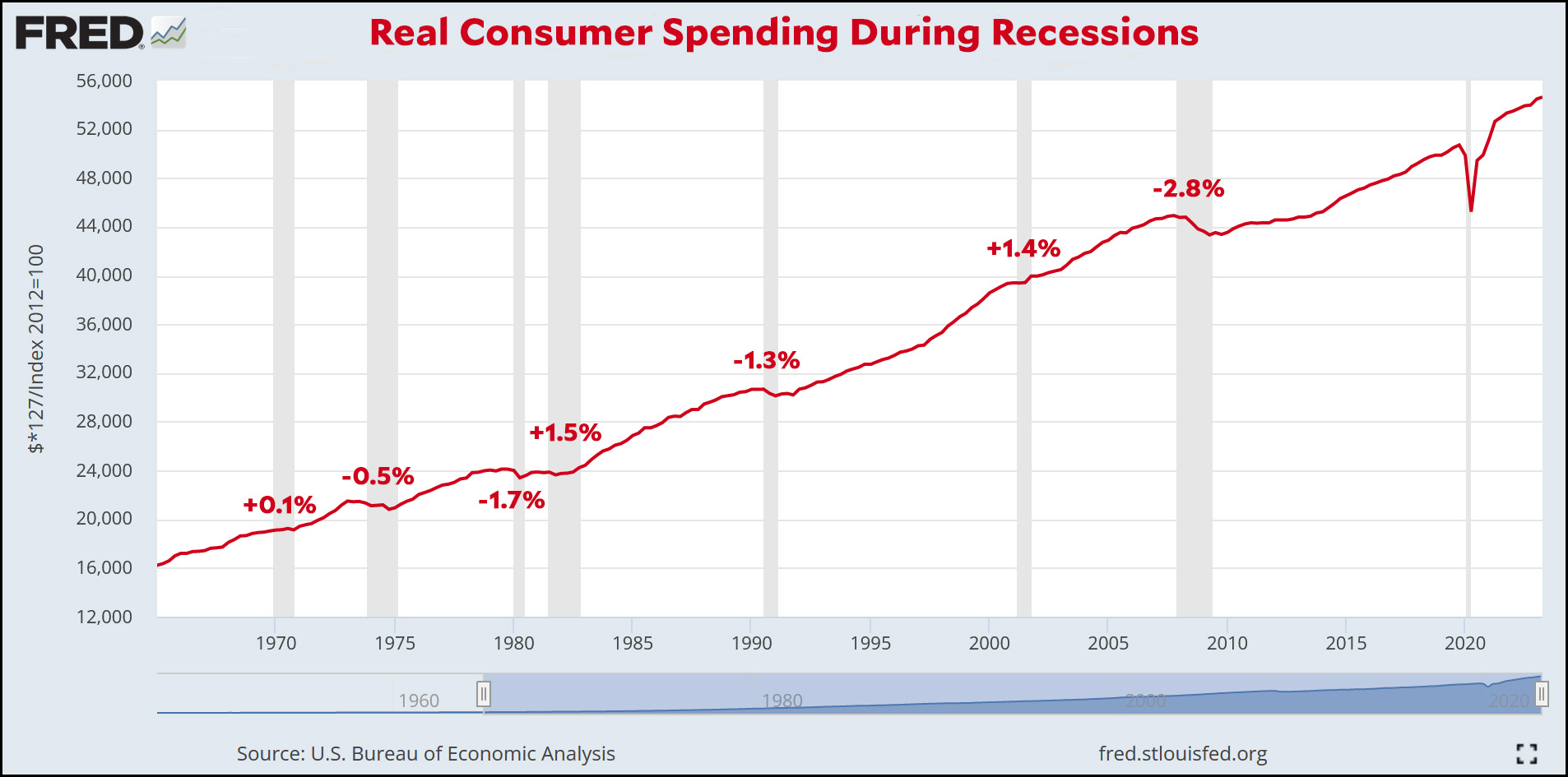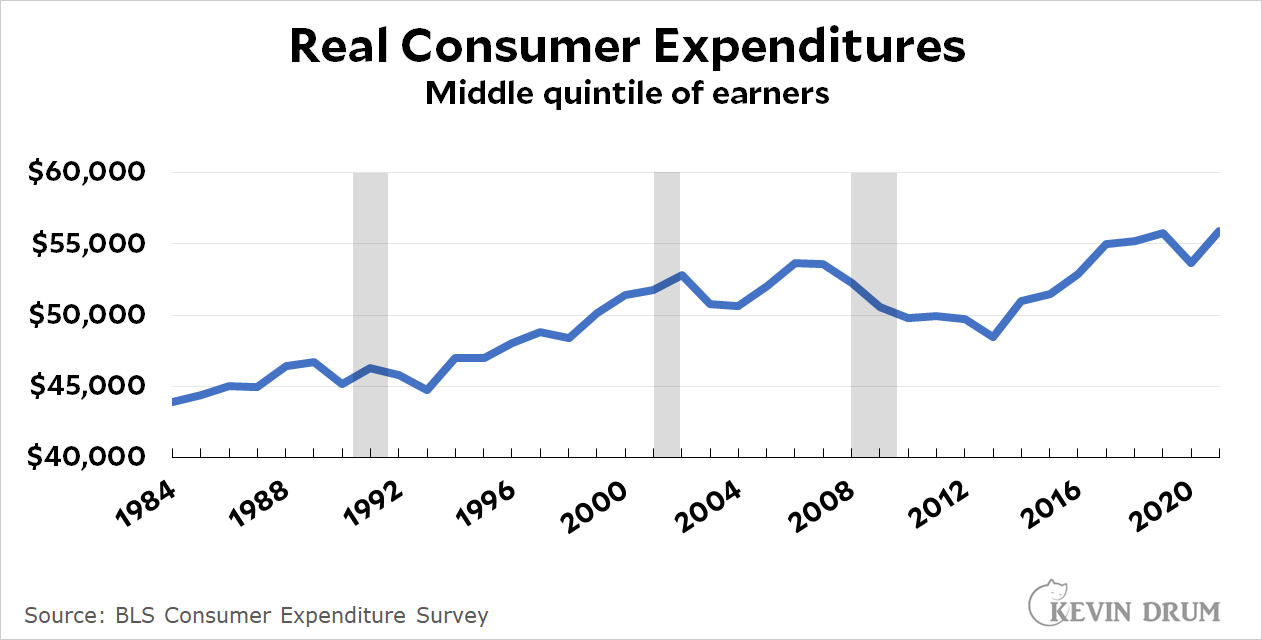I don't have any special reason for posting this, but it's something I noticed a while back and felt like sharing:
 The thing I noticed is that even during recessions consumer spending barely changes at all. Half the time it actually goes up, and the other half of the time it declines only slightly. The only significant drop in consumer spending was during the Great Recession in 2008.
The thing I noticed is that even during recessions consumer spending barely changes at all. Half the time it actually goes up, and the other half of the time it declines only slightly. The only significant drop in consumer spending was during the Great Recession in 2008.
And consumer spending virtually never drops before a recession, so it's of no use as a bellwether. It just keeps increasing until suddenly it doesn't.
For what it's worth, this is per-capita spending, so it's a mean, not a median. This means it's skewed upward by the small number of zillionaires in the sample. It would be interesting to compare this to median consumer spending, which would give us a better idea of spending just in the middle income range, but as far as I know the BEA doesn't publish that.
UPDATE: Here are consumer expenditures just for the middle income range:
 This only goes back to 1984 and it's annual, so it's not as useful as the top chart. However, it shows roughly the same thing: flat spending in 1991, increased spending in 2001, and sharply lower spending in 2008.
This only goes back to 1984 and it's annual, so it's not as useful as the top chart. However, it shows roughly the same thing: flat spending in 1991, increased spending in 2001, and sharply lower spending in 2008.






